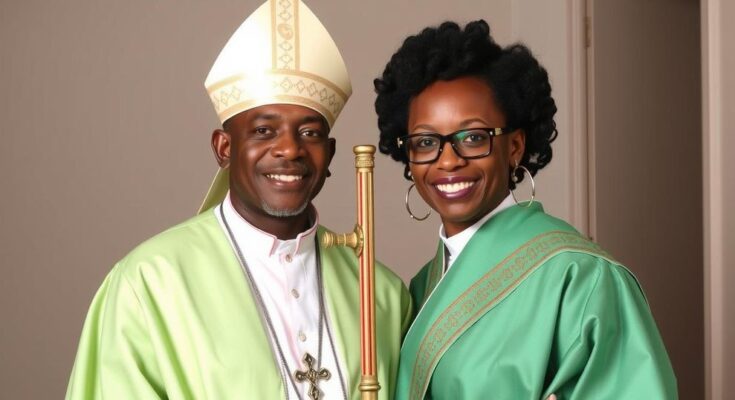Mozambique’s Catholic Bishops have acknowledged the solidarity from their counterparts in Angola and São Tomé and Príncipe, following a prayer initiative aimed at promoting peace in Mozambique amidst rising post-election violence. The Bishops expressed gratitude for the spiritual support, highlighting the importance of unity in overcoming challenges faced during this crisis.
On January 8, 2025, Mozambique’s Catholic Bishops expressed their profound gratitude for the solidarity demonstrated by their colleagues in Angola and São Tomé and Príncipe, following a significant three-day Prayer initiative aimed at fostering peace in Mozambique. This initiative, organized by the Bishops’ Conference of Angola and São Tomé and Príncipe, is termed the Triduum Prayer Initiatives, signifying a source of hope amidst the escalating violence affecting Mozambique, particularly in the aftermath of the controversial October 9 presidential election results.
The Bishops of Mozambique, through a statement shared with ACI Africa, acknowledged the heartfelt message of solidarity from their Angolan counterparts, particularly in light of the ongoing crisis exacerbated by the electoral violence. Their message highlighted the unity and communal spirit shared among the faithful: “Your message dated December 31, 2024, in which you express your solidarity with the Mozambican people and the Catholic Church in Mozambique, once again tested by the pain and anguish caused by widespread violence…”
The statement emphasized the importance of spiritual unity in times of distress. The Bishops noted, “The spiritual solidarity bears witness to the unity and communion of the children of the same Church who, through their prayers and supplications to God.” This sentiment echoed the shared experiences of suffering and hope among the communities of Angola, São Tomé and Príncipe, as well as Mozambique.
Street protests erupted following the announcement of the election results, which granted the Frelimo party, the longstanding ruling party, another term in office. The opposition, particularly the new party Podemos and its candidate Venancio Mondlane, rejected these results, alleging electoral fraud. Reports indicate that violence related to these events has claimed over 130 lives, intensifying the urgent call for peace.
On December 24, the Constitutional Council upheld Frelimo’s electoral victory, which has been contested by various opposition and civil society groups. Meanwhile, Mondlane, the opposition leader, plans to return to Mozambique after claiming he faced threats to his safety after the elections.
The Prayer initiative, culminating in a Vigil for Peace on January 3, demonstrates the Church’s commitment to peace amid unrest. The Executive Secretary of the Catholic Commission for Justice and Peace of CEAST, during a homily at the vigil, underscored the weighty consequences of violence. He stated, “We pray for Mozambique caught in a spiral of violence. Violence breeds more violence, causing suffering, anguish, and forced migration. Violence is not the remedy for our fractured world.”
He urged attendees to contemplate the vulnerabilities faced by Mozambique’s most disadvantaged populations, endorsing non-violent approaches as a path to reconciliation and healing.
The article addresses the ongoing crisis in Mozambique, primarily stemming from the violence surrounding its recent presidential election, which has incited widespread unrest and significant loss of life. In response to the escalating violence and the ensuing humanitarian concerns, the Catholic Bishops from Mozambique reached out to their counterparts in Angola and São Tomé and Príncipe. This engagement reflects a broader theme of solidarity and the shared struggle for peace among nations in this region of Southern Africa, highlighting the role of faith and communal prayer in times of crisis.
In conclusion, the solidarity expressed by the Catholic Bishops of Angola and São Tomé and Príncipe serves as a beacon of hope for the Church and the people of Mozambique amid a tumultuous post-election climate. The commitment to prayer and non-violence emphasizes the importance of unity within the Church and the broader community, affirming the shared human experience of suffering and the aspiration for peace. This poignant reminder of solidarity showcases the significant role faith communities can play in addressing and alleviating the impacts of violence in society.
Original Source: www.aciafrica.org




